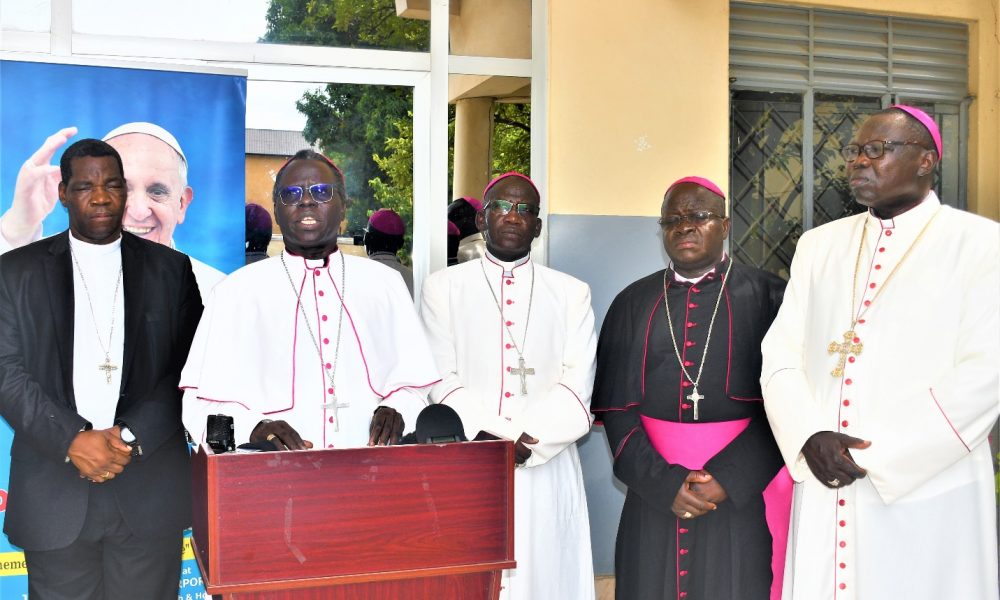By William Madouk
Senior South Sudan clerics have tasked government over intermittent violence in the country, citing that it emanates from the power struggles among parties to the revitalized peace deal.
Metropolitan Archbishop of Juba, Dr. Stephen Ameyu Martin Mula, speaking on behalf of the Catholic Bishops and Ordinaries of South Sudan, said on Friday, that the country is fully at peace.
“The current power-sharing government needs to demonstrate political will to bring about a just and peaceful dispensation in the country,” said Bishop Ameyu.
He argued that the revitalized peace deal has not resolved root causes of the conflict in the country but rather created a mechanism for elites to find themselves in an uneasy partnership at the cost of the people.
“It is a flowing process, and there will never be peace in South Sudan as long as the international community insists on this type of model,” he added.
Although President Salva Kiir promised several times not to take the country back to war, cleric Ameyu said the soaring conflict cannot be termed a communal fight but stems from power struggles.
“There is violence in many parts of the country that cannot simply be dismissed as ‘local’, ‘communal’, or tribal. It relates to the power struggles currently going on within the ‘power sharing’ national government in Juba,” the bishop claimed.
The continued surge in violence has claimed hundreds of lives, including humanitarian workers.
Parts of the country have been witnessing a series of acts of violence, resulting to loss of hundreds of lives and many others wounded, for instance in Warrap, Upper Nile, Lakes, Greater Jonglei, and Unity states.
Parties to the revitalized agreement, also had yet to reach an agreement with the holdout groups to end rampant violence and the suffering of citizens, like the NAS that continues threatening Equatoria region.
However, the Catholic bishops called on all parties to fully implement the pending peace provisions.
Yet the senior clerics question the current model, which gives elites who have taken up arms a dividend in power-sharing at the expense of civilians.
This month, an inter-communal fight erupted in Malakal PoCs, allegedly due to a lack of space for settlement in the camp.
According to the UNMISS update, the death toll had increased from 3 to 17 after the victims who were admitted to a local hospital succumbed to their wounds.
The quarterly UNMISS report on human rights recently published has revealed a surge in violence against civilians.
According to the report, 920 incidents of violence against civilians, including 243 children, have been documented.
It also said 405 civilians have been killed, 235 injured, 266 abducted, and 14 have been subjected to “conflict-related sexual violence.”
“Inter-communal violence by militias and civil-defense groups, were the primary source of civilian violence, accounting for more than 92 percent (847 of all civilian victims),” it partially states.
The report also indicates that a “12 percent increase in violent incidents against civilians, a 113 percent increase in abductions (from 125 to 266), and a 78 percent decrease in conflict-related sexual violence (from 63 to 14) occurred during the same reporting period in 2022.”
However, National minister of information, Michael Makuei rubbished the claims, saying that most of the reports are being twisted by people who use malice to justify their relevance.




